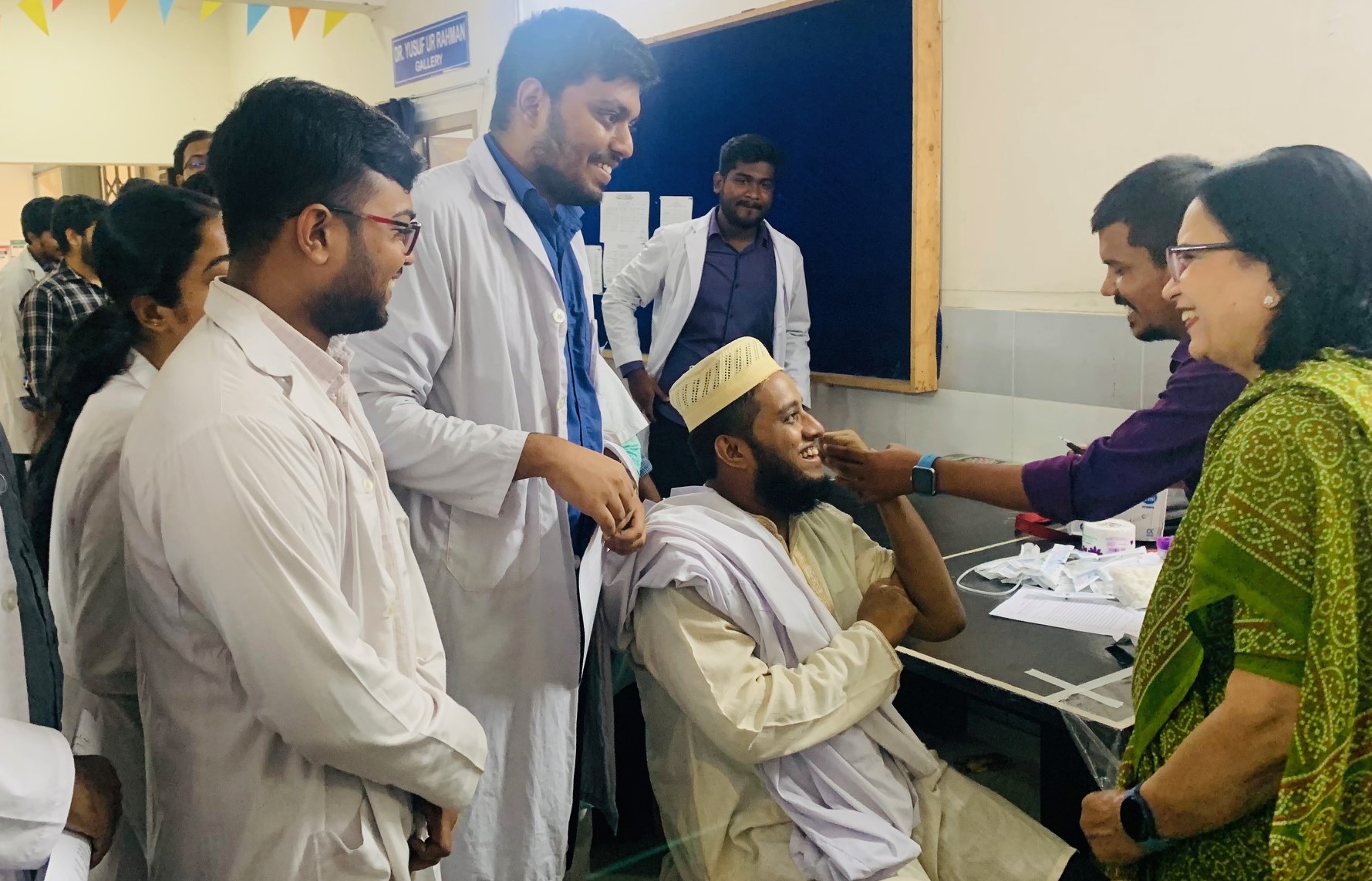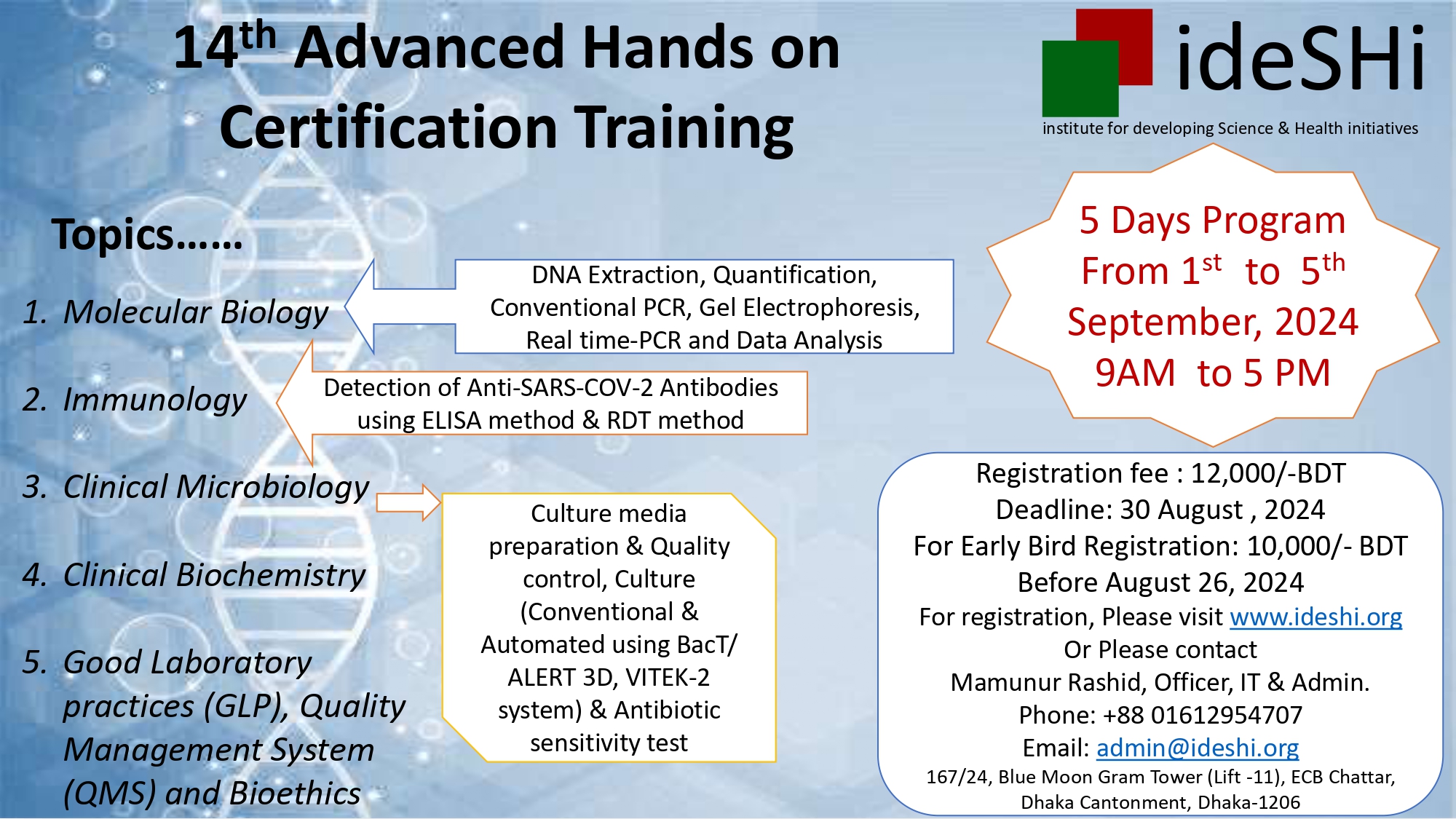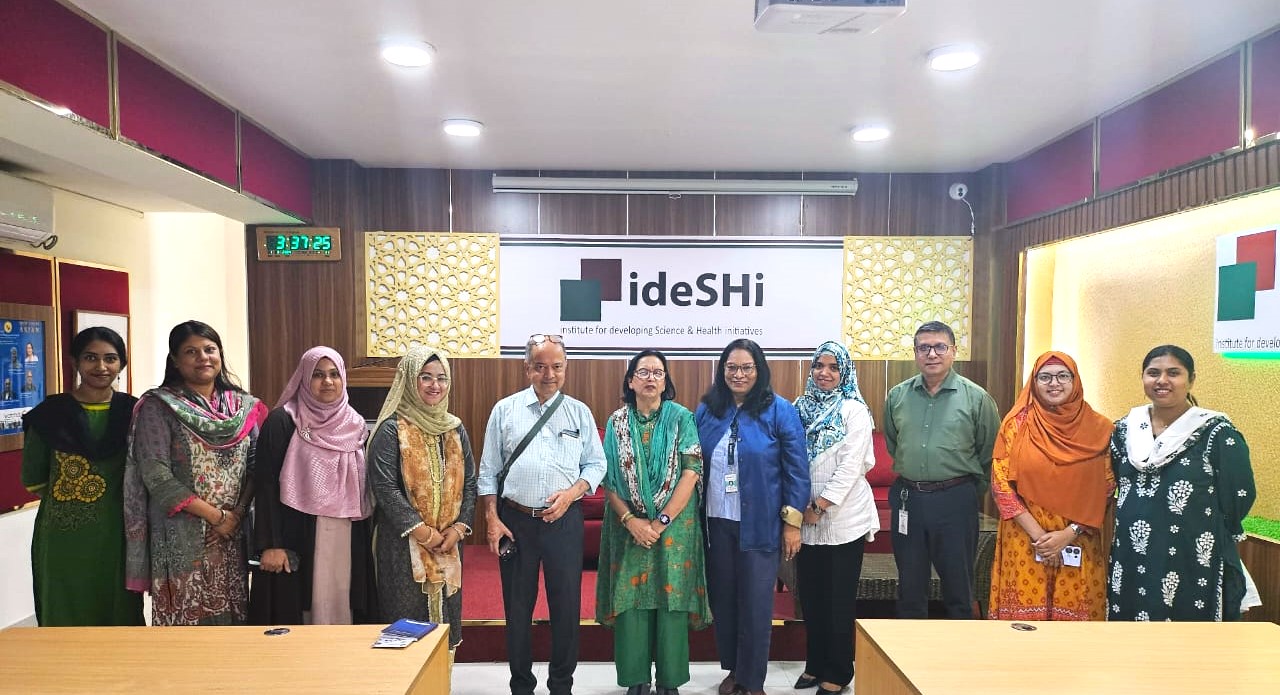Program Lead
Dr. Kasrina Azad
Our Approach
There are estimated 60,000-70,000 patients are suffering from thalassemia and 2500 thalassemia major cases are added in Bangladesh every year. And, unknowingly and unwittingly they are contributing to the spread of the disease by marrying another carrier. The carriers are otherwise normal individuals
Without any signs or symptoms of the disease. The alarming thing is, approximately 18 million people are unaware that they are carrying the disease. If only they knew, that they are carriers of the disease, they surely could take conscious decisions to prevent the spread of the disease!
ideSHi (Institute of Developing Science and Health Initiatives) is conducting a Thalassemia Awareness and Free Carrier Screening Program by monthly to educate the community about Thalassemia. These campaigns can involve public talks, workshops, seminars, and distribution of informational materials to raise awareness about the condition, its consequences, and the importance of carrier screening. The institute provides free Thalassemia carrier screening tests to individuals within the target population. These tests help identify carriers of the Thalassemia gene, who may pass it on to their children. Identifying carriers is crucial for family planning and prevention of the disease.
Research Goals
- The primary goal is to raise awareness about Thalassemia within the community. This includes educating people about the condition, its causes, symptoms, and the potential consequences for carriers and their offspring.
- The program aims to identify individuals who carry the Thalassemia gene (carriers) within the target population. By offering free carrier screening tests, ideSHi hopes to help individuals understand their carrier status and make informed decisions about family planning.
- The ultimate objective is to prevent new cases of Thalassemia by identifying carriers and providing them with the information and support they need to make informed choices about starting or expanding their families. This contributes to reducing the prevalence of Thalassemia within the community.
- By reducing the incidence of Thalassemia, the program aims to improve the overall health and well-being of the community. Families can make decisions that lead to healthier children, fewer medical expenses, and a better quality of life.
Context
From October 2021- October 2023, ideSHi carried out total 14 awareness and screening sessions.
Total screened: 1661 person
Thalassemia Carrier detected: 202
Beta thalassemia carrier: 46
Delta-Beta thalassemia carrier: 2
Hb E carrier: 148
Hb E disease: 06
Hb D carrier: 04
Hb S carrier: 04
Carrier detection rate: ~ 12.1%
Impact
The impact of ideSHi’s Thalassemia Awareness and Free Carrier Screening Program can be substantial and far-reaching. The program aims to achieve several significant positive outcomes, including:
- Reduced Incidence of Thalassemia: The primary impact is the reduction in the incidence of Thalassemia within the targeted population. By identifying carriers and providing them with information and support for informed family planning, the program can significantly decrease the number of children born with severe Thalassemia.
- Improved Health Outcomes: Families and individuals who participate in the program are likely to experience improved health outcomes. By avoiding the birth of children with Thalassemia, families can prevent the emotional, physical, and financial challenges associated with the disease.
- Enhanced Quality of Life: Families who receive genetic counseling and make informed decisions can enjoy a better quality of life. They can allocate their resources and energy to other aspects of life, rather than being burdened by the demands of caring for a child with Thalassemia.
- Community-Wide Awareness: The program’s awareness campaigns can lead to a better-informed community. Even individuals who are not carriers may benefit from an increased understanding of Thalassemia, which can lead to early diagnosis and prevention.






